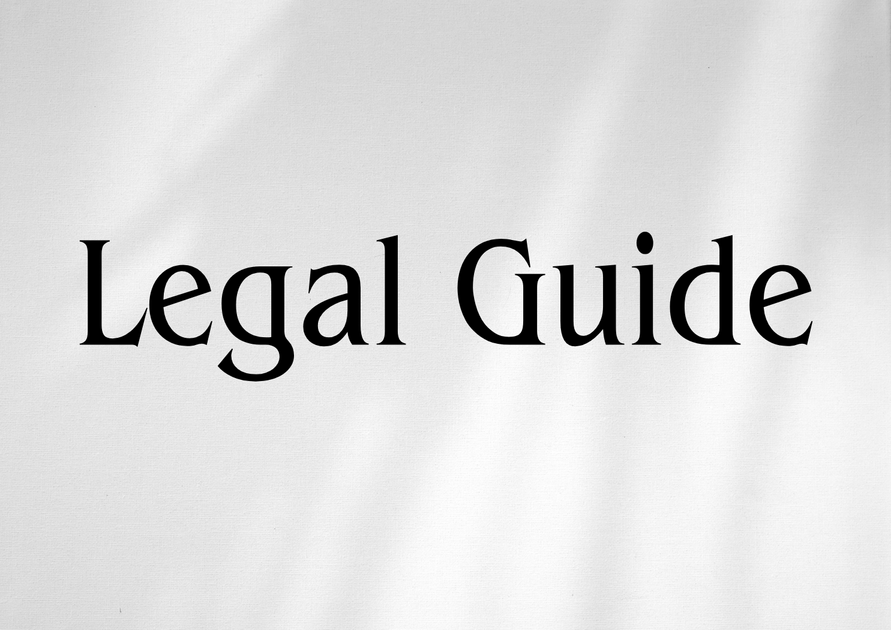Introduction
The rapid integration of artificial intelligence (AI) in educational technology is revolutionizing e-learning across the Middle East, particularly in Qatar and the UAE. As both private educational providers and government-backed platforms harness AI-driven tools—from personalized adaptive learning to automated assessments—the legal dimensions of data privacy, intellectual property, and regulatory compliance have assumed unprecedented significance. With recent governmental focus on digital transformation and regulatory updates in both nations, legal practitioners and sector executives must carefully assess the unique challenges and opportunities posed by deploying AI in education. This comprehensive analysis examines the evolving legal frameworks that govern AI-powered e-learning in Qatar, juxtaposing key lessons and strategies from the UAE’s own progressive regulatory landscape. Our aim is to provide actionable legal insight for educational institutions, edtech companies, HR managers, and business leaders seeking to ensure compliance, mitigate risk, and unlock the benefits of digital education in the Gulf region.
Table of Contents
- Strategic Context for AI in E-Learning
- Legal Framework for AI and E-Learning in Qatar
- Key Regulatory Insights from the UAE
- Data Privacy and Student Records in AI E-Learning
- Intellectual Property Considerations in Digital Education
- Compliance Risks and Enforcement Consequences
- Practical Scenarios and Case Studies
- Compliance Strategies and Best Practices
- Conclusion: Adapting to the Future of AI in E-Learning
Strategic Context for AI in E-Learning
AI’s rise in education reflects both global technology trends and the regional push toward knowledge-based economies. Qatar’s commitment to ‘Qatar National Vision 2030’ and the UAE’s National AI Strategy highlight their aim to become innovation leaders, with education as a foundational pillar. These initiatives incentivize public and private actors to digitize learning and deploy AI-powered platforms—raising legal questions on data use, student safety, and intellectual property. Given rapid regulatory changes, an in-depth understanding of evolving laws is essential for any entity operating in this sensitive arena.
Market Trends and Legal Implications
From AI-driven language learning systems to adaptive university portals, the education sector’s embrace of machine learning and big data offers tailored student experiences. However, these advancements also expose organizations to strictures under data privacy, cybercrime, and copyright laws. Failure to anticipate regulatory obligations can result in financial penalties, reputational harm, or withdrawal of educational licenses.
Legal Framework for AI and E-Learning in Qatar
Governing Laws and Regulations
The core legal framework for AI-powered e-learning in Qatar is anchored in several statutes and ministerial decisions. Chief among these:
- Law No. 13 of 2016 Regarding Personal Data Protection (Qatar Data Privacy Law)
- Ministry of Education and Higher Education (MOEHE) Guidelines on E-learning Platforms
- Law No. 7 of 2002 on the Protection of Copyright and Related Rights
- Decree Law No. 14 of 2004 on Cybercrimes
- Relevant circulars and directives from the Qatar Central Bank (for e-learning payment solutions)
Each of these regulations addresses dimensions crucial to AI e-learning platforms: data acquisition and processing, digital content stewardship, online safety, and secure procurement of digital services.
Update: AI Policy Developments
While Qatar has yet to issue an omnibus AI-specific law, sectoral guidelines—such as MOEHE’s technical standards for remote education—now incorporate requirements for explainability, transparency, and ethical use of algorithms. Entities deploying AI in the educational context must also anticipate further regulations following the government’s recent ‘National AI Strategy’ announcement (2022).
Key Provisions Table: Qatar E-Learning Legal Landscape
| Law/Guideline | Main Topic | Recent Updates |
|---|---|---|
| Law No. 13 of 2016 | Personal Data Protection | MOEHE requires explicit parental consent for minors |
| MOEHE Guidelines | Technical & Ethical Standards | Mandate explainable AI; regular risk audits |
| Law No. 7 of 2002 | Copyright | Clarified scope on digital learning materials (2021 MOEHE Circular) |
| Decree Law No. 14 of 2004 | Cybercrime | Expanded to include AI-assisted cyber threats |
Key Regulatory Insights from the UAE
Given the dynamic interplay between Qatar and UAE’s educational sectors, examining the UAE’s distinguished regulatory path provides valuable context and strategic guidance for organizations operating cross-border or benchmarking compliance programs.
Relevant UAE Laws for Reference
- Federal Decree-Law No. 45 of 2021 on Personal Data Protection (UAE Data Protection Law)
- Cabinet Resolution No. 21 of 2013 regulating e-learning and online education platforms
- UAE AI Ethics Guidelines (2020), Ministry of Artificial Intelligence
- Federal Law No. 38 of 2021 on Copyrights and Related Rights
These statutes reflect a progressive approach, emphasizing individual rights, transparency, and sector-specific oversight. For organizations in Qatar aiming to adopt best practices or prepare for evolving legal standards, tracking developments in the UAE provides a crucial compliance roadmap.
Table: Comparison of Key E-Learning Legal Provisions – Qatar vs UAE
| Aspect | Qatar | UAE |
|---|---|---|
| Personal Data Protection | Law No. 13 of 2016 Sectoral AI rules emerging |
Federal Decree-Law No. 45 of 2021 Comprehensive personal data rights |
| AI Ethics | MOEHE Guidelines Ethics incorporated by reference |
Dedicated AI Ethics Policy (Ministry of AI 2020) |
| Copyright | Law No. 7 of 2002 (updated 2021) |
Federal Law No. 38 of 2021 Expanded digital scope |
| Platform Registration | Mandatory for K-12 providers (MOEHE Circular 2020) |
Cabinet Resolution No. 21 of 2013 Strict licensing of e-learning platforms |
| Penalty Structure | Administrative sanctions, fines, suspension | Fines, suspension, and, in serious cases, criminal prosecution |
Data Privacy and Student Records in AI E-Learning
Personal Data Obligations
Qatar’s Law No. 13 of 2016 establishes strict limitations on collecting, processing, and storing students’ and parents’ personal data. Providers of AI e-learning platforms must ensure:
- Explicit parental consent for minors’ data, with clear opt-in procedures
- Transparent disclosures about AI system operations and data use
- Data minimization: Only necessary data to be collected for educational objectives
- Mandatory breach reporting and data security measures
MOEHE further insists on ‘privacy by design’ in all digital learning platforms, and regular privacy impact assessments where algorithms are used to process or profile learners.
Lessons from the UAE’s Federal Decree-Law No. 45 of 2021
The UAE’s 2021 personal data protection law enshrines ‘data subject rights’, including the right to access, correction, objection, and erasure, similar to GDPR standards. These provisions provide a best-practice benchmark for organizations operating in Qatar, especially those with cross-border digital operations or transfer of student records.
Practical Example
Imagine an international online school using an AI-based assessment tool that evaluates emotional engagement from webcam video streams. Under Qatari law, explicit parental consent and clear privacy notices are mandatory. The provider must also ensure that data processing is limited to what is strictly necessary for educational improvement, not for commercial or profiling purposes.
Intellectual Property Considerations in Digital Education
Ownership and Use of AI-Generated Content
Law No. 7 of 2002 (Qatar) and Federal Law No. 38 of 2021 (UAE) both grant rights holders—such as teachers, content creators, and institutions—protection for original works, including lessons, quizzes, and multimedia materials. With AI-powered systems now capable of generating unique classes, summaries, or translations, key legal questions arise regarding copyright ownership and permitted use.
- Who owns AI-generated educational content—the institution, the developer, or the AI platform provider?
- How are licensing terms for third-party AI tools negotiated, particularly when blended with proprietary school content?
- What disclosures and permissions are required for integrating open-source or cloud-based AI software?
Recent Guidance and Practical Insight
MOEHE’s 2021 circular clarified that copyright for AI-generated materials defaults to the institution, provided the platform is contracted for educational purposes and not for external commercial gain. However, explicit contractual terms should always be negotiated to resolve ambiguity—especially concerning training datasets, future reuse, and cross-border use of digital resources.
Placement Suggestion: Compliance Checklist Table
| IP Compliance Step | Recommended Action |
|---|---|
| Audit Educational Materials | Identify all digital/AI-derived content; assess origin and licensing terms |
| Vendor Agreements | Define IP ownership and permissible uses in contracts |
| Open Source Usage | List licenses; ensure compliance with attribution and use restrictions |
| Staff Training | Educate faculty on avoiding unauthorized content reuse |
Compliance Risks and Enforcement Consequences
Key Risks
- Non-compliant Data Processing: Failing to meet consent and transparency obligations can trigger administrative sanctions.
- Unlicensed E-Learning Operation: Running AI-driven platforms without MOEHE registration or approval risks suspension and monetary penalties.
- Copyright Violations: Using AI to copy or remix unlicensed materials can lead to civil and criminal liability.
- Cybersecurity Lapses: Insufficient protection of student records and AI model security could result in breaches, public reporting, and reputational damage.
Table: Penalties for Non-Compliance (Qatar and UAE)
| Offense | Qatar Penalties | UAE Penalties |
|---|---|---|
| No Parental Consent for Minors | QAR 1,000,000 fine, platform suspension | AED 5,000,000 fine, freezing of operations |
| Unauthorized Commercial Use of Data | Up to QAR 5,000,000, revocation of license | Severe fines, up to 5 years imprisonment for willful breach |
| Unlicensed Content Distribution | Civil damages, platform ban | Civil and criminal liability, asset seizure |
Compliance and Audit Strategies
- Conduct annual privacy and IP audits for all AI-driven education products
- Regularly update data protection policies in line with MOEHE and Ministry of Justice guidance
- Establish clear escalation frameworks for privacy breaches and student complaints
Practical Scenarios and Case Studies
Hypothetical Scenario: School AI Platform Rollout
- A Qatari school deploys a third-party AI platform for personalized learning. Parents are not notified about the platform’s data use beyond basic registration.
- Risk: Breach of Law No. 13 of 2016; subject to audit, platform suspension, reputational harm.
- Solution: Immediate parental notification, updated privacy statements, data minimization, regular reporting to MOEHE.
Cross-Border Data Flow: UAE Edtech Firm Serving Qatari Students
- A Dubai-based edtech startup delivers AI virtual assistants to Qatari schools. Student interaction data is stored in UAE-hosted servers.
- Legal Consideration: Both UAE’s Federal Decree-Law No. 45 of 2021 and Qatar’s Law No. 13 of 2016 may impose dual obligations. Data transfer agreements, robust encryption, and mutual recognition of privacy standards are essential.
Placement Suggestion: Process Flow Diagram
Visual depicting the data collection, consent, AI processing, and policy review cycle provides clarity for clients. Suggest integrating a flowchart outlining the lifecycle of student data in AI-powered e-learning platforms.
Compliance Strategies and Best Practices
Building a Legally Sound AI E-Learning Program
- Pre-implementation Legal Audit: Assess regulatory landscape; identify all personal data sets; catalogue AI tool IP ownership
- Contracts and Vendor Management: Draft clear contracts specifying data use, liability, and IP considerations. Require compliance certifications from all technology partners
- Parental Engagement: Develop accessible notification and consent mechanisms, focusing on transparency for minors
- Data Security Upgrades: Implement best-in-class encryption, access controls, and security monitoring. Appoint a Data Protection Officer or equivalent
- Staff and Student Awareness Programs: Regularly train educators and administrative staff on privacy, copyright, and AI ethics
- Ongoing Legal Monitoring: Track developments in both Qatari and UAE regulatory frameworks; subscribe to Ministry of Justice updates
Conclusion: Adapting to the Future of AI in E-Learning
The emergence of AI in education—while a driver of personalization and pedagogical innovation—introduces complex legal considerations that Qatari and UAE organizations cannot afford to overlook. With enforcement tightening and cross-border compliance becoming more challenging, educational institutions, tech companies, and investors must adopt a legally proactive approach: ensuring transparency, user consent, secure technology deployment, and clear contractual terms at all stages. By aligning practices with the latest updates under Qatari law, drawing on UAE regulatory best practices, and maintaining robust compliance processes, stakeholders can position themselves at the forefront of safe, compliant, and transformative education. The legal environment will inevitably continue to evolve, and those prepared to adapt—by embedding legal expertise into technology adoption—will shape the Gulf’s educational future for the benefit of students, families, and society at large.



